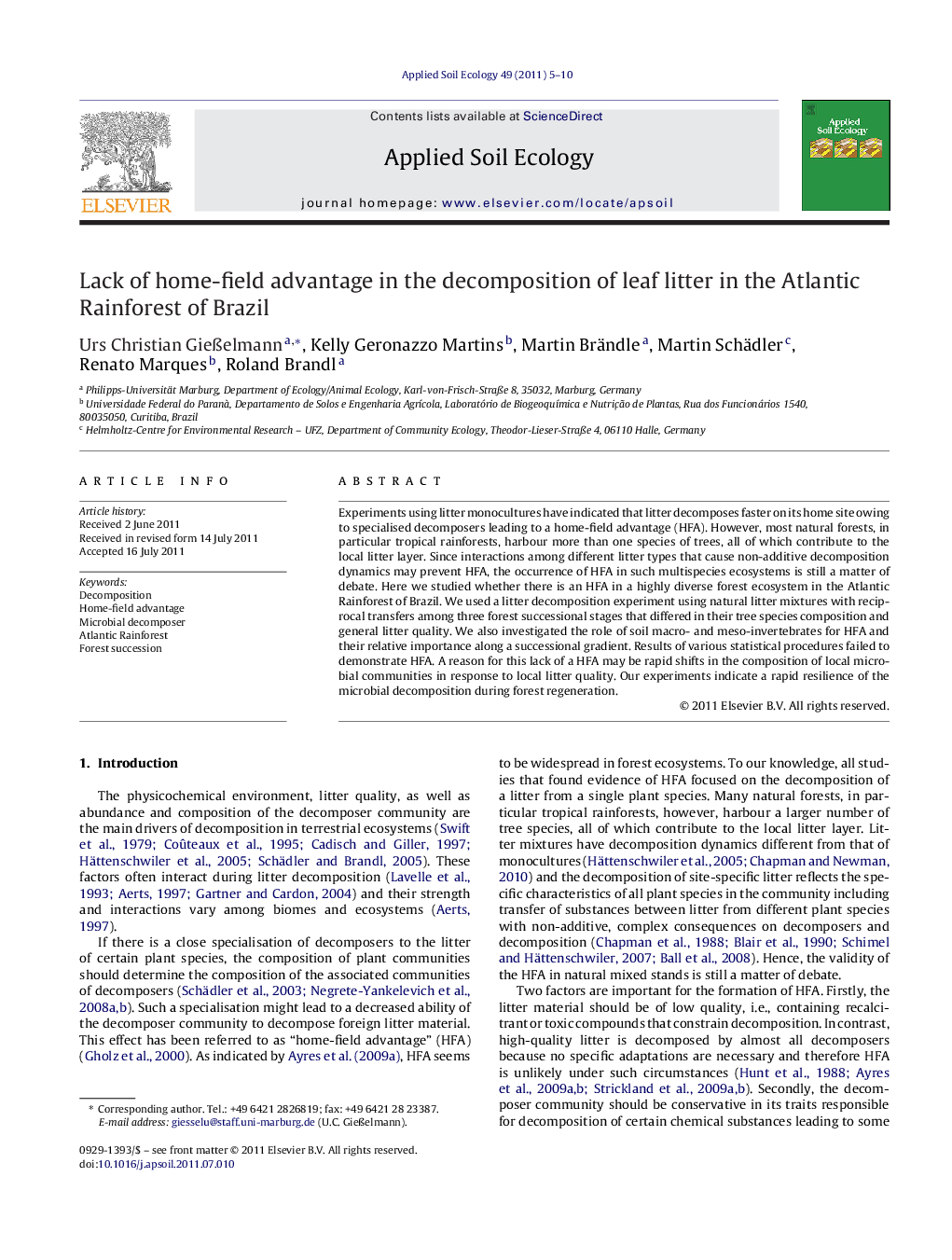| Article ID | Journal | Published Year | Pages | File Type |
|---|---|---|---|---|
| 4382690 | Applied Soil Ecology | 2011 | 6 Pages |
Experiments using litter monocultures have indicated that litter decomposes faster on its home site owing to specialised decomposers leading to a home-field advantage (HFA). However, most natural forests, in particular tropical rainforests, harbour more than one species of trees, all of which contribute to the local litter layer. Since interactions among different litter types that cause non-additive decomposition dynamics may prevent HFA, the occurrence of HFA in such multispecies ecosystems is still a matter of debate. Here we studied whether there is an HFA in a highly diverse forest ecosystem in the Atlantic Rainforest of Brazil. We used a litter decomposition experiment using natural litter mixtures with reciprocal transfers among three forest successional stages that differed in their tree species composition and general litter quality. We also investigated the role of soil macro- and meso-invertebrates for HFA and their relative importance along a successional gradient. Results of various statistical procedures failed to demonstrate HFA. A reason for this lack of a HFA may be rapid shifts in the composition of local microbial communities in response to local litter quality. Our experiments indicate a rapid resilience of the microbial decomposition during forest regeneration.
► We found no home field advantage in litter decomposition in a diverse ecosystem. ► The lack of HFA is possibly due to the flexible microbial decomposer community. ► We suggest that the microbial flexibility leads to high resilience of decomposition.
